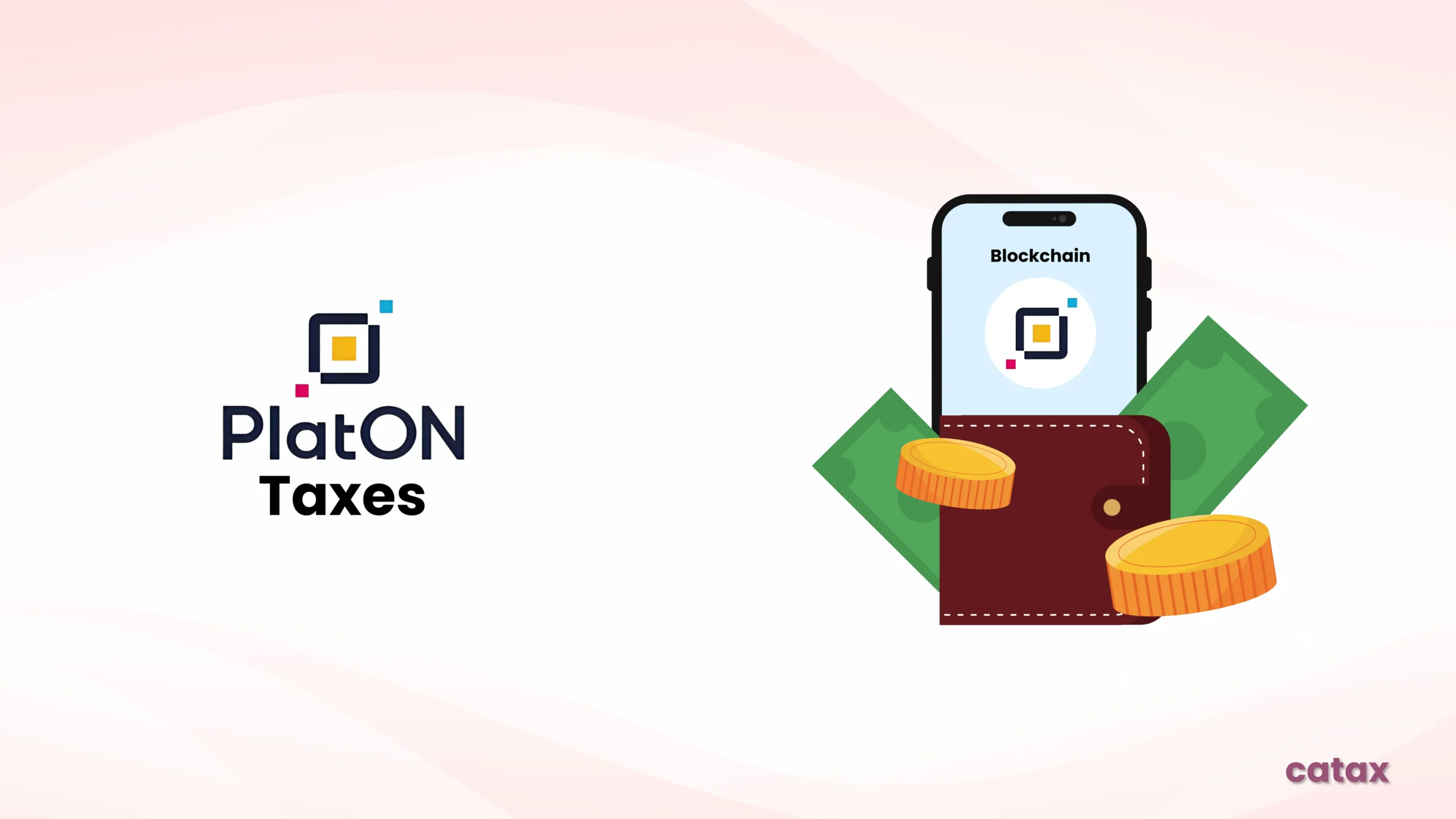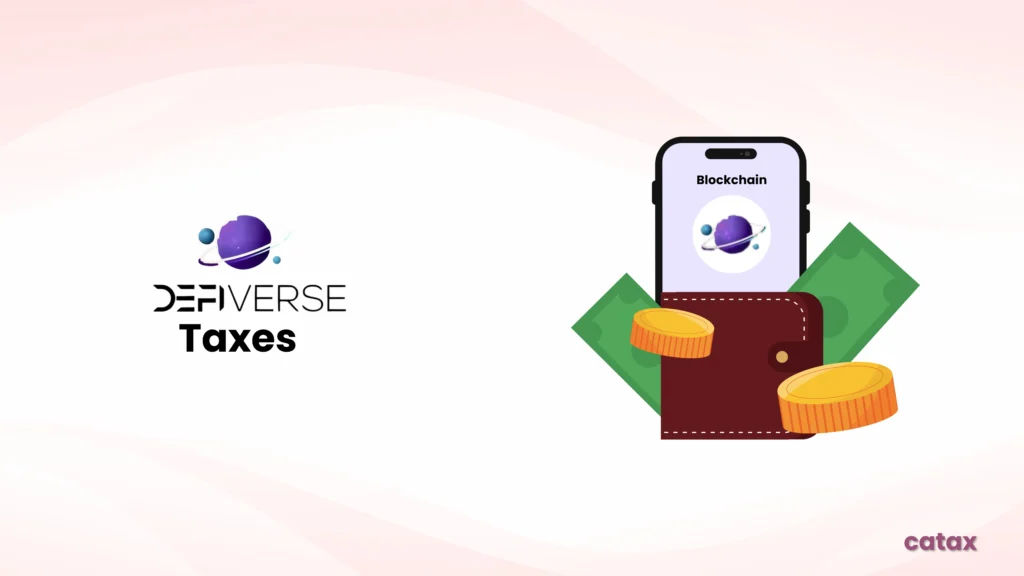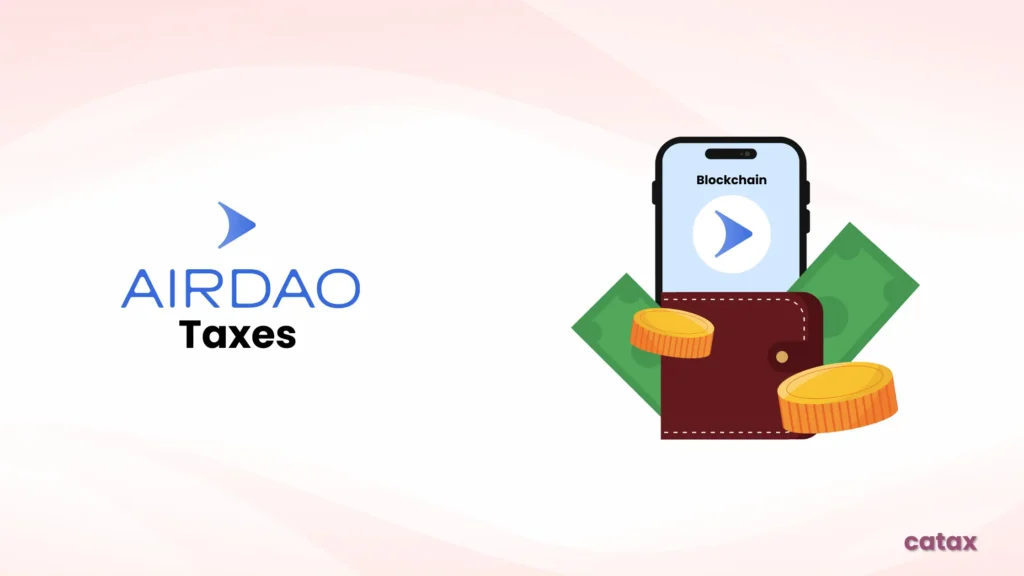Cryptocurrency tax rules vary by country, and PlatON Network (LAT) taxes transactions may be taxed differently depending on local regulations. Whether you buy, sell, trade, or stake LAT, understanding how tax authorities classify these actions helps you stay compliant and avoid penalties.
This guide breaks down PlatON tax rules so you can manage your crypto taxes confidently and stay aligned with legal requirements.

- How to Connect Your PlatON Wallet to Catax?
- Are PlatON (LAT) Transactions Taxable?
- When Do You Have to Pay Taxes on PlatON (LAT)?
- Can You Deduct Trading Fees and Other Costs?
- How Is PlatON (LAT) Taxed Based on Holding Period?
- How Is Staking Income Taxed for PlatON (LAT)?
- Can You Claim PlatON (LAT) Losses for Tax Benefits?
- How to Stay Compliant with PlatON (LAT) Tax Rules
How to Connect Your PlatON Wallet to Catax?
To easily track your PlatON Network (LAT) transactions and calculate taxes, follow these simple steps to connect your wallet to Catax:
- Open your PlatON wallet or use a supported block explorer (such as MetaMask, Ledger, or any compatible PlatON wallet).
- Copy your public wallet address from your PlatON wallet.
On Catax:
- Log in to your Catax account and select your country.
- Choose Chain, then search for PlatON Network.
- Paste your public wallet address and click Connect.
Once connected, Catax will automatically import your LAT transactions and help you simplify and streamline your crypto tax reporting.
Calculate My Taxes ➤Are PlatON (LAT) Transactions Taxable?
Yes, in most countries, PlatON Network (LAT) transactions are taxable. Depending on how you use LAT, tax authorities may classify it as a capital asset, property, or income.
When Do You Have to Pay Taxes on PlatON (LAT)?
You may be required to pay taxes in the following scenarios:
- Selling LAT for a profit – If you sell LAT for more than you originally paid, the profit is usually taxed as a capital gain.
- Trading LAT for another crypto – Swapping LAT for tokens like Bitcoin or Ethereum is generally considered a taxable event.
- Using LAT for purchases – Spending LAT on goods or services may trigger capital gains tax if the token has appreciated in value.
- Earning LAT from staking or rewards – LAT received through staking or as a reward is often taxed as income at the time of receipt.
- Receiving LAT as payment – If you’re paid in LAT, the amount is typically taxed as income based on its fair market value at the time received.
Tax treatment may vary depending on your jurisdiction, so check your local crypto tax regulations.
Can You Deduct Trading Fees and Other Costs?
Your ability to deduct fees and related expenses depends on your country’s crypto tax laws.
Some jurisdictions allow deductions for:
- Trading fees incurred while buying or selling LAT
- Network fees used for transferring LAT
Other countries may only permit:
- Deductions of the original purchase price (cost basis), without recognizing additional costs.
It’s always best to consult your local tax code or a qualified tax advisor to confirm allowable deductions.
How Is PlatON (LAT) Taxed Based on Holding Period?
Your tax rate may vary based on how long you hold your LAT tokens:
- Short-term holdings (less than one year) – Usually taxed at standard income tax rates.
- Long-term holdings (over one year) – Some countries offer favorable tax rates for long-term capital gains.
- Flat-rate systems – In certain jurisdictions, a fixed tax rate is applied to all crypto gains, regardless of the holding period.
Understanding how your country treats LAT holdings can help reduce your tax burden and guide a smarter tax strategy.
You can also check out our Country-Specific Guide for Crypto in Your country. This guide provides insights on regulations, tax implications, and compliance measures breifly explained for each country.
How Is Staking Income Taxed for PlatON (LAT)?
Your country’s tax authorities determine how your PlatON (LAT) staking income is taxed. Some tax you when you receive rewards, while others apply taxes only when you sell or exchange them.
How Countries Tax PlatON Staking Rewards
- Taxed as capital gains – In other countries, taxes apply only when you sell the staking rewards. You’ll be taxed on the profit made between the value when received and the value at the time of sale.
If you stake LAT, understanding your country’s tax treatment helps you plan ahead and avoid surprises—even if you haven’t sold any tokens yet.
Review your local tax laws before staking LAT to avoid unexpected liabilities.
Can You Claim PlatON (LAT) Losses for Tax Benefits?
Not every LAT trade results in a gain. If you sell LAT at a loss, you may be able to reduce your tax bill. Here’s how crypto losses are handled across different jurisdictions:
- Loss offsets – Some countries let you offset crypto losses against capital gains from other assets, reducing your overall tax burden.
- Loss carryforward – If your losses exceed gains in a given year, some tax systems allow you to carry forward those losses to offset future profits.
- No deductions – A few jurisdictions do not allow any deductions for crypto losses, meaning you won’t receive any tax benefit from the loss.
To claim tax benefits accurately, keep detailed records of all LAT transactions, including purchase prices, sale amounts, and transaction dates.
How to Stay Compliant with PlatON (LAT) Tax Rules
Crypto regulations are constantly evolving, so staying compliant is key to avoiding penalties. Here’s how to manage your LAT taxes efficiently:
- Classify LAT activity properly – Determine if your LAT transactions are considered income, capital gains, or business income in your country.
- Maintain complete records – Keep a detailed log of all PlatON (LAT) activity, including purchases, sales, staking rewards, and wallet transfers.
- Use Catax – Catax can automatically track your LAT transactions and generate tax reports tailored to your country’s requirements.
- Consult a tax expert – A qualified crypto tax professional can help interpret local laws and ensure you’re filing accurately.
Stay proactive and organized to minimize your LAT tax liability and remain fully compliant.
Book a Free Consultation Now →

